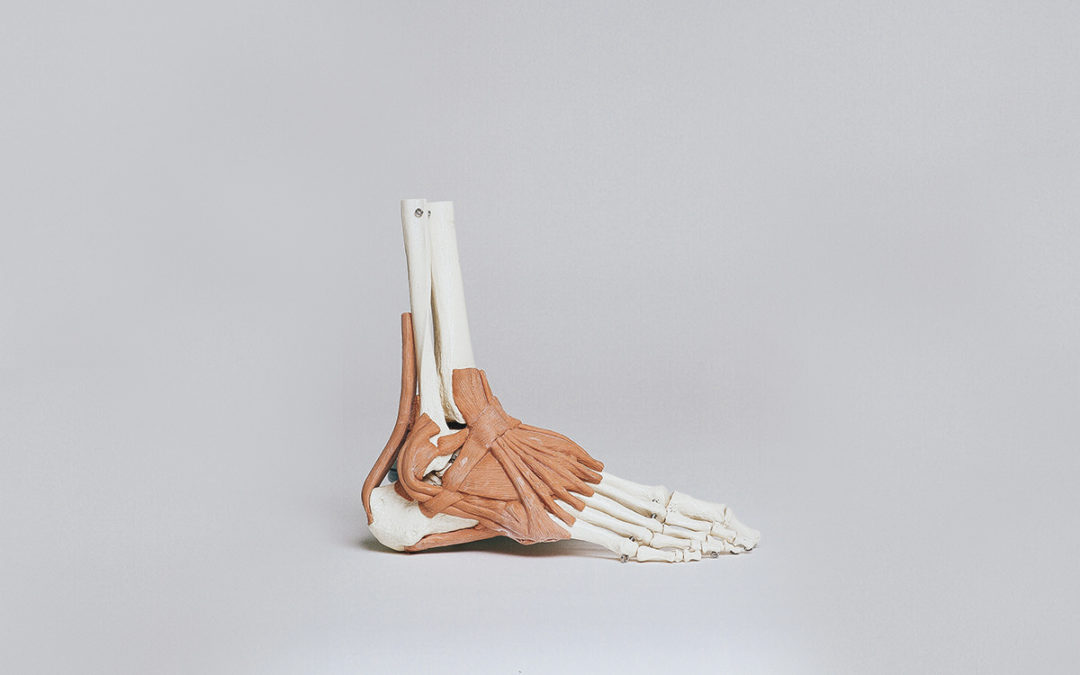
Sep 24, 2018 |
Swiss New Testament scholar Eduard Schweizer once wrote that we will never understand the human body if we think about single members severed from the body and conceive the body as the mere sum of hundreds of members.
Then, drawing a parallel with the church, he added, “We shall never understand Paul’s concept of the church if we begin our theological thinking with the individual Christian and consider the church as something like a social gathering or an association of individuals sharing some common interests.”
While The Church as the Body of Christ was published in 1964, Schweizer’s words ringer truer than ever. I saw this while doing some research for my new book, Fingerprint of God.
One night I found myself unable to sleep. Climbing out of bed, I examined some statistics. What I found stunned me. The worldliness that has transformed the church is obvious from the incidence of such practices as abortion, pornography addictions, substance abuse, and extramarital affairs—as self-reported by church members.
I couldn’t help thinking of congregations with whom I have worshiped over the years. Many are thriving, with thousands coming through the doors weekly. Yet leaders often don’t address such issues as abortion, adultery, or gambling. They fear losing members or contributions.
I have come face to face with such timidity. Some years ago, an abortion clinic operated by Planned Parenthood opened near a church my family attended. I sometimes went early to pray on the sidewalk as women arrived.
Many saints would face inclement weather and ridicule from pro-abortionists to take a silent stand. It felt like being in the midst of a supernatural battle between God and Satan. I talked with pastors about coming to pray, or at least visit to see what was going on.
Some came, many weeping as they realized what they were witnessing. Others made the choice to ignore what was happening. Even though future members of their church were losing their lives nearby, they wouldn’t come, nor talk about it from the pulpit.
Instead, they accepted the death of innocents as a “new normal.” Destabilizing the situation would be bad for their church; they were operating as a business instead of the body of Christ.
How does it reflect on the church as a whole when so many of us gather on Sunday morning to raise our hands, sing praise and worship songs, smile and shake hands, and yet under the shampooed hair and bathed bodies our hearts are hardened? When we accept evil as the norm?
At the time I talked with pastors about the abortion clinic, their lack of action surprised me. I have since come to realize the underlying problem is how we view ourselves as believers. Those leaders who frustrated me were simply making rational, business-like decisions.
If church members and leaders are members of a living body, they tend to address deep relationship issues. If the church is a business, then the well-being of the business is the underlying influence when it comes to making decisions.
Perhaps, like Schweizer wrote, we have failed to see our vital connection with other believers. We too often see ourselves as doing the business of Christ, rather than as members of the living body of Christ.

Sep 17, 2018 |
Contemplate the term, “body of Christ.” If you’re like me, you may feel a bit uneasy thinking of yourself as a biblical body part. However, take a deep breath and meditate on the deeper meaning; you may find yourself fascinated with the implications.
When we take what we know scientifically about the human body and apply it to the body of Christ, we can discover deeper truths about what the latter means. As Paul wrote to the Corinthians: “Just as a body, though one, has many parts, but all its many parts form one body, so it is with Christ. For we were all baptized by one Spirit so as to form one body . . . and we were all given the one Spirit to drink” (1 Corinthians 12:12-13 NIV).
Paul went on to compare how parts of our physical body function in unison. In a similar way, the body of Christ is to work together, as a unified whole. Each person who accepts Jesus as Savior and Lord is a member of this body.
This truth prompted me to reflect on the meaning of individuality. It is as individuals that we make the decision to become Christ’s followers. And, if we come to Christ as individuals, doesn’t this mean God deals with us as individuals from the moment of our crucial decision?
This is significant; if this is true, the concerns of the individual can take pre-eminence over the concerns of the body. Yet, the church is a body. So when God deals with me, is it as a part of the body of Christ? Or as an individual?
An individualistic American is more comfortable with the latter choice. But Scripture is clear that our Creator sees individuals as members of a larger body.
A multitude of souls makes up the body of Christ. We aren’t self-contained members, each commissioned to wage spiritual warfare with the enemy. None of us is all-knowing or all-sufficient. We need each other’s support and mutual perspectives.
Each of us is a member of the same body, with each of us playing a unique role. So rejection or belittling of another member should cause us pain. We should never look down on or berate members we see as less important than ourselves.
To me, the description of the body of Christ in the New Testament reads more like a biology textbook than a business plan. We need to see ourselves as a living, divinely-inspired body. So, when speaking about this body, it is helpful to use language that expresses terms of life.
The biblical phrase, “body of Christ,” helps everyone better understand the unseen spiritual world. While we live in a body, each of us has a spirit and a mind. Our body is only the temporary vehicle our spirit uses to navigate through this world.
Christ, too, has a body here on earth. This body allows Him to move through the physical world as He touches and interacts with people. This wonderful unseen body may indeed be even more real, and more detailed, than our physical bodies.
It is a profound thought, and a profound honor, that the Lord would allow us to be part of this gracious plan for hope and healing – the body of Christ.

Sep 10, 2018 |
During my residency training, I spent several months caring for hospital patients. Every morning our entourage of five or six doctors, residents, and students went from room to room, checking on patients assigned to our medical team. One lady who stands out in my memory is Donna Sue.
Though hospitalized for pneumonia, Donna Sue’s long-term problem originated with her weight. Although seemingly on the mend from a lung infection, antibiotics and other medications weren’t going to cure her morbid obesity. Therefore, we did our best to help her shed excessive weight by placing her on a strict diet. We emphasized the medical necessity of this regimen and explained why caloric restriction was necessary for her health and well-being.
Yet, after several days of this strict diet, we were confounded to discover it wasn’t working. If anything, Donna Sue had added a few pounds. We set out to search for a myriad of rarely-seen metabolic causes behind her problem.
One day, I went to check her heart and lungs, trying to tactfully lift the rolls of fat before placing my stethoscope onto her chest. To my surprise, a flattened Twinkie—still encased in a clear wrapper—fell from the folds of her torso and landed on the bedsheets. We discovered she had been sending a friend to the candy machine for goodies. No wonder!
We can learn two key lessons from the case of the “Twinkie Lady”:
1) When our programs aren’t producing results, we should re-evaluate.
2) Sometimes the answer is right in front of us; we just need to dig to find it!
I am concerned about ineffective treatments for the ailments of the (big C) Church, especially in America. While many have written about how to help, too many of the treatments prescribed assume the church should operate like a business.
Indeed, we often run our churches that way. Like a corporation in a proxy battle, we line up voting members to support our interests as we compete for control of the church. In place of evangelism we have marketing campaigns. The senior pastor is our CEO and elders make up the board of directors.
Meanwhile, clergy and laity remain separate from each another, occupying separate turf and not crossing into each other’s fiefdoms. We try to win the world by using the ways of the world, and then wonder why we are irrelevant when we step outside the church walls.
The fact is, many of these programs haven’t produced good results. A leading problem: we’ve forgotten we’re supposed to be a living body. I confirmed this view by how little I discovered during extensive research about the Church and the necessity of a biological—or “living”—point of view of Church life.
Why has this occurred? I believe that as society has grown more affluent, believers have self-organized local churches using a business model instead of a living-body model. Treating the church as a business seems pragmatic: projects must be serviced, operating expenses paid, people in charge held accountable, and the church made presentable to the community.
Ironically, I have found more emphasis on the biological concept—so vital for a healthy church—in secular material than books by Christian writers. Business authors understand the value of biological concepts. Their books suggest businesses work better when they feature a biological (i.e., “organic”) design, rather than top-down control rooted in the early days of the Industrial Age. The latter seems popular in too many sanctuaries.
The frustrating aspect is that, while church people often don’t “get it,” highly intelligent people in the world do (even though they may use different terminologies and have little to say about the Church).
Whether organizational leaders, business managers, game theorists, or computer programmers, smart people recognize that mimicking biological principles works. That’s how God made living things, with all sorts of positive developments that would be impossible without a living model.
However, the Church, which is supposed to be a living body, has moved in the opposite direction. This is disastrous, because the Church is under ever-increasing attack. As subtle attacks turn into less-veiled hostility and persecution increases, believers will need to understand they are members of a living body, and not just part of a church establishment that can be usurped or driven out of business by worldly powers.

Sep 4, 2018 |
In his New Testament letters, the apostle Paul taught—in biological terms—that we are a living body. One body with many members, possessing all of the attributes of life. Although we are individuals, in our actions, relationships, and interactions, all believers are part of this body.
We learn about unseen spiritual things by comparing them to physical things we can see. Christ has a body that is in some ways similar to our physical make-up.
At first, it may seem odd to compare the human body to an unseen entity. Still, the Bible calls God’s children a body. By understanding what this means, we gain insights as to who we are from God’s point of view.
If you ask the average church member, “What is the church?” they will likely reply, “It’s the body of Christ.” If you follow up with: “What’s the body of Christ?” they will likely answer, “It’s the church.” Over time, these two terms have become interchangeable.
Perhaps at first, “body of Christ” was a radical idea, with world-changing implications. Yet, after appearing in sermons and conversations for 2,000 years, the phrase has become so familiar it has taken on the character of a cliché.
Since I grew up in church, this phrase eventually took on the flavor of religious jargon for
me, too. For a long time, I didn’t comprehend the depth of its implications.
However, after spending more time meditating on scripture and its parallels to the human body, I find it fascinating that the Bible calls us a body. It’s not the first term that comes to mind when I think about Christians as a group.
We may never know all the reasons why God used it, but looking at how the human body fits together helps us know more about what God expects of us as Christians.
We are very fortunate to live in an age filled with insights about the structures and processes found in human bodies.
As a child, I thought if someone had cancer, that automatically meant a terminal illness that left them without hope. Today, modern medicine has learned how to manipulate the structures and processes of our bodies so profoundly that many types of cancer and other diseases once considered a death sentence are now manageable—even curable.
Doctors spend years studying bodies. They read volumes about the human body, shock them back to life, operate on live ones, dissect dead ones, and see most of what can go wrong with them.
Even though the inner structures and processes may not appeal to the average person, there is nothing in creation more interesting.
The more physicians and academicians study the way the body’s different parts fit together, communicate with each other, and function for the overall benefit of the whole body, the more enthralling their discoveries. There is nothing as wonderfully intricate and awe-inspiring as the human body.
This explosion of medical knowledge can also be used to find a new depth of meaning in the biblical term, “body.” There is nothing as powerful and rich with potential as the body of Christ. May we see it quickly come back to life in our troubled times.




